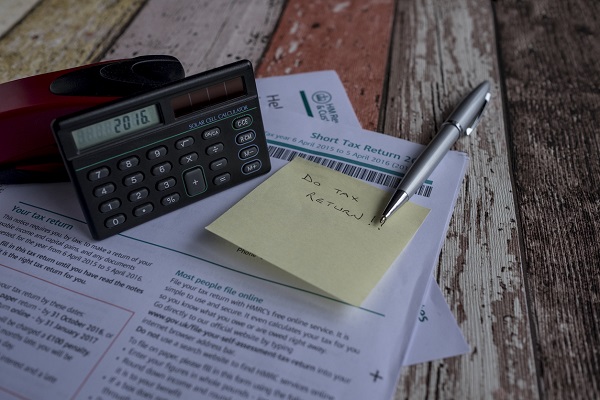They can be convoluted, confusing and take up many hours of your time but tax returns are important – and must be done to a deadline. And the cut off date for this financial year – 31 January 2017 – is quickly looming.
With Christmas and the party season on the horizon, employers and employees’ precious time will soon be taken up by eating, drinking and being merry. So now is the time to get your return finished or to make a good start on it, so you won’t be buried under receipts when you should be enjoying mince pies and charades with the family.
Who has to do a tax return?

Officially known as Self Assessment tax returns, the system was introduced by the government to collect income levies from those who don’t have them automatically deducted from their wages, pensions or savings.
There are many people that fall into this category, the main being those who are self-employed. But they also relate to those who may receive an income from a source other than their employment.
This can include people who, in the course of the tax year, get an income from renting out a home, made profits from selling shares or a second home, had an income from abroad that was taxable or had a savings or investment income of £10,000 or more.
How much time do I have?
In accordance with the finance year, the tax year runs from April – April but people have plenty of time to sort their returns. Although the tax year finished on 5 April 2016, returns do not have to be filed until 31 January – a window of over nine months.
However, as we are now hurtling towards the end of 2016 time is quickly running out. Tax returns can be laborious but it’s important to get them done as soon as possible because missing the deadline can incur a penalty.
People who submit their tax returns up to three months late are hit with an automatic £100 penalty, but the rate goes up if you continue to go over the deadline.
Help is at hand
If the thought of completing your tax returns fills you with dread, or if you’ve made a start on it but can’t face wading through the rest of the paperwork to finish it off, you can appoint someone to complete it on your behalf, and send it in. Your appointed person can be a friend, relative or professional, such as an accountant or bookkeeper.
For those that are taking the tax return bull by the horns, the AMR team here offers its advice to help you gather the necessary information to prepare your tax return:
- File your paperwork. Hold on to the forms and correspondence you get from HMRC and keep it together with other important documentation, such as P60s, receipts and records of expenses so you have it to hand when needed.
- Create a spreadsheet where you can log all cash paid in, cash paid out and expenses.
- Keep on top of your returns. People often find themselves in a jam when they leave their return to the last minute and have just a few weeks to sift through a year’s worth of transactions. Setting aside time every month to go through bank statements and update your spreadsheet will help spread the workload.
- If you have savings keep hold of records of interest received.
- HMRC has put together a series of YouTube videos and webinars that take you through every step of the process – from filling in your first self assessment to budgeting.
You can watch them here.
To find out more about how we can help get in touch here.







